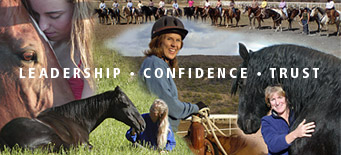PROBLEM-SOLVING DVD SERIES
"Horses are individuals and require their own time to reshape behavior, but you can expect to see an obvious improvement from your very first session... guaranteed!" -Karen
----------------------------------------------------------------------------------------------
-
----------------------------------------------------------------------------------------------
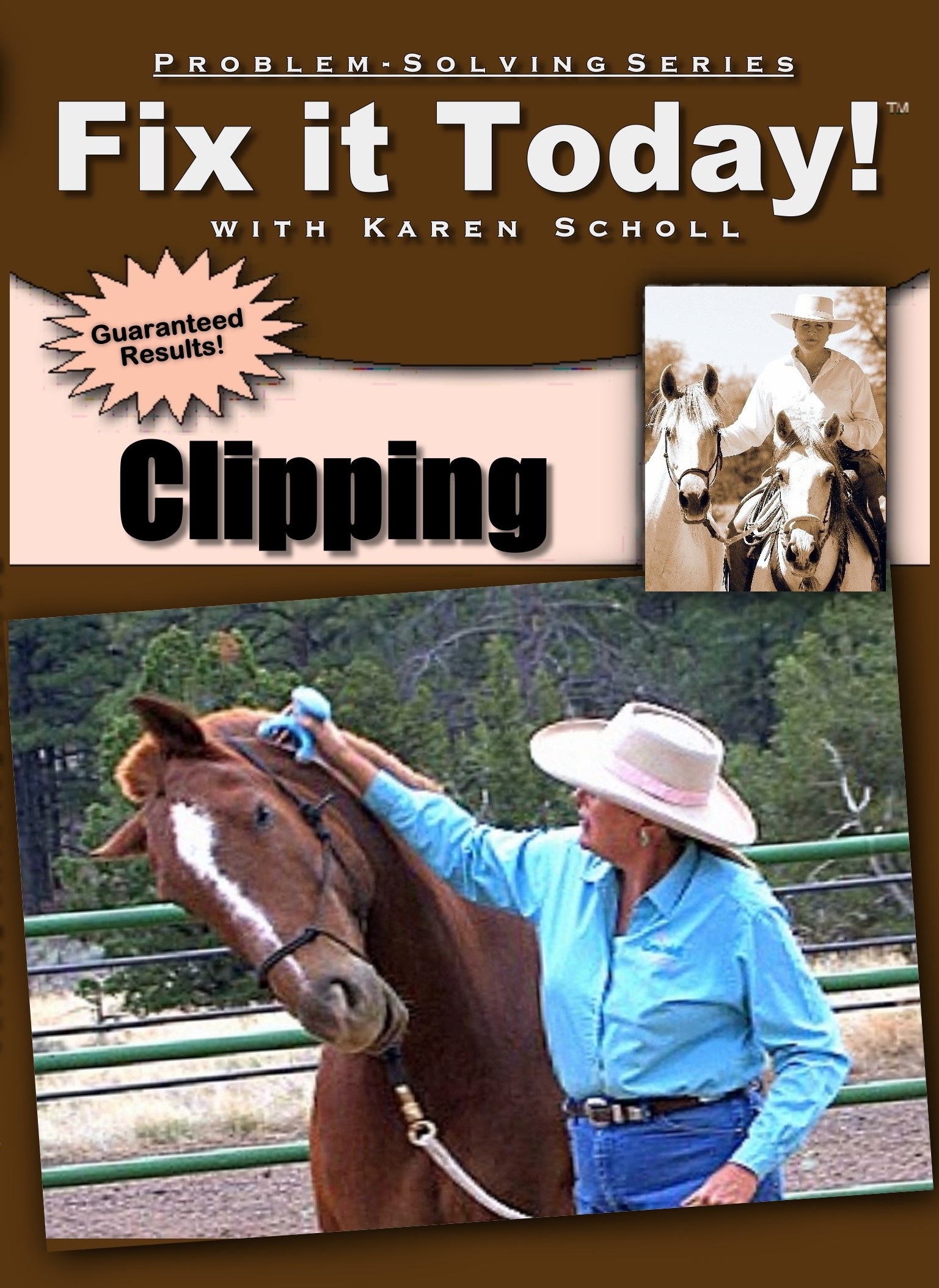 Fix It Today! CLIPPING
Fix It Today! CLIPPING
Clipping horses can easily turn in to a big fight resulting in frustration, fear or even serious harm, and it's common for folks to give up and use scissors or even sedate a horse, only because they don't know what else to do.
Though we know clipping won't be painful, it's the approach we take that will either trigger or minimize the natural defense mechanism of a very large and powerful prey animal!
Teaching a horse to relax when being clipped prepares them for any situation - for a vet procedure or future owner - so why not try an approach to make clipping issues a thing of the past? -
----------------------------------------------------------------------------------------------
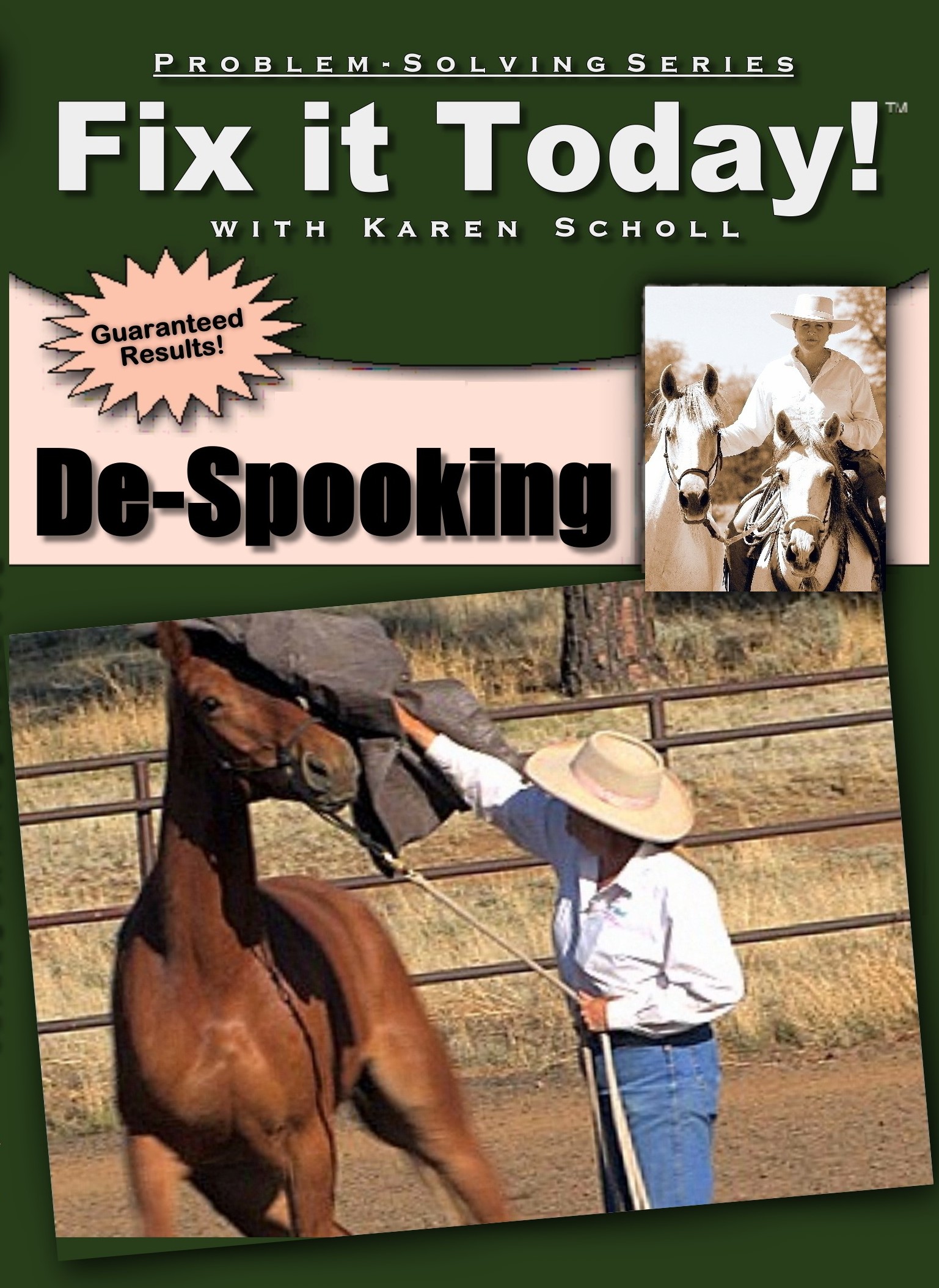 Fix It Today! DE-SPOOKING
Fix It Today! DE-SPOOKING
A common challenge with horses is how to respond when they spook. It startles us as well, and without knowing what else to do, we're left to dread the next incident without any more preparation than before!
Being prey animals, horses survive when they spook and flee from a perceived threat. When our position of leadership is established, a horse will instinctively tune in to how we respond. By developing our ability to handle a situation with confidence we can help
a horse maintain their confidence as well.
Fix It Today! Problem-Solving DVD Series
----------------------------------------------------------------------------------------------

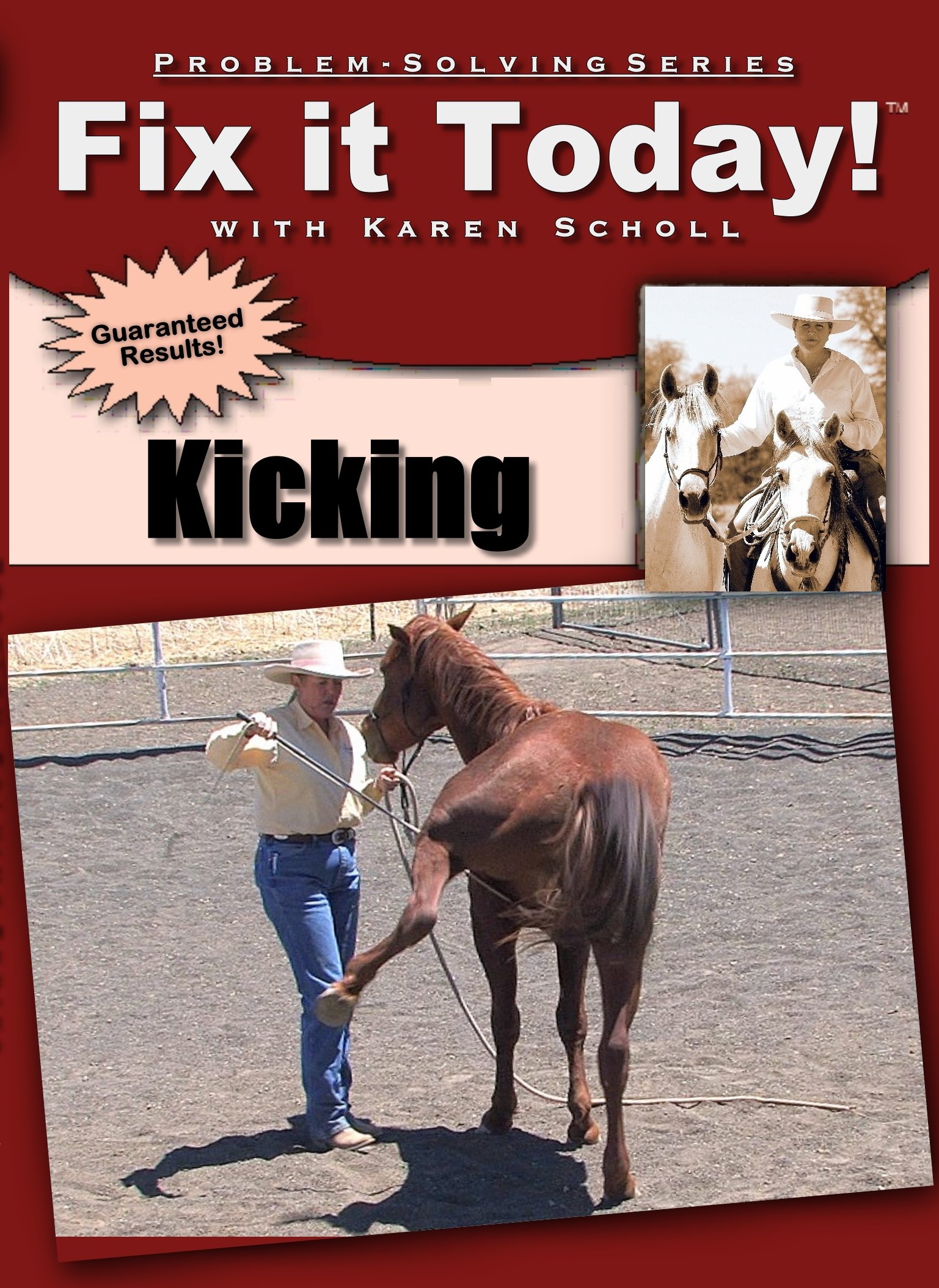
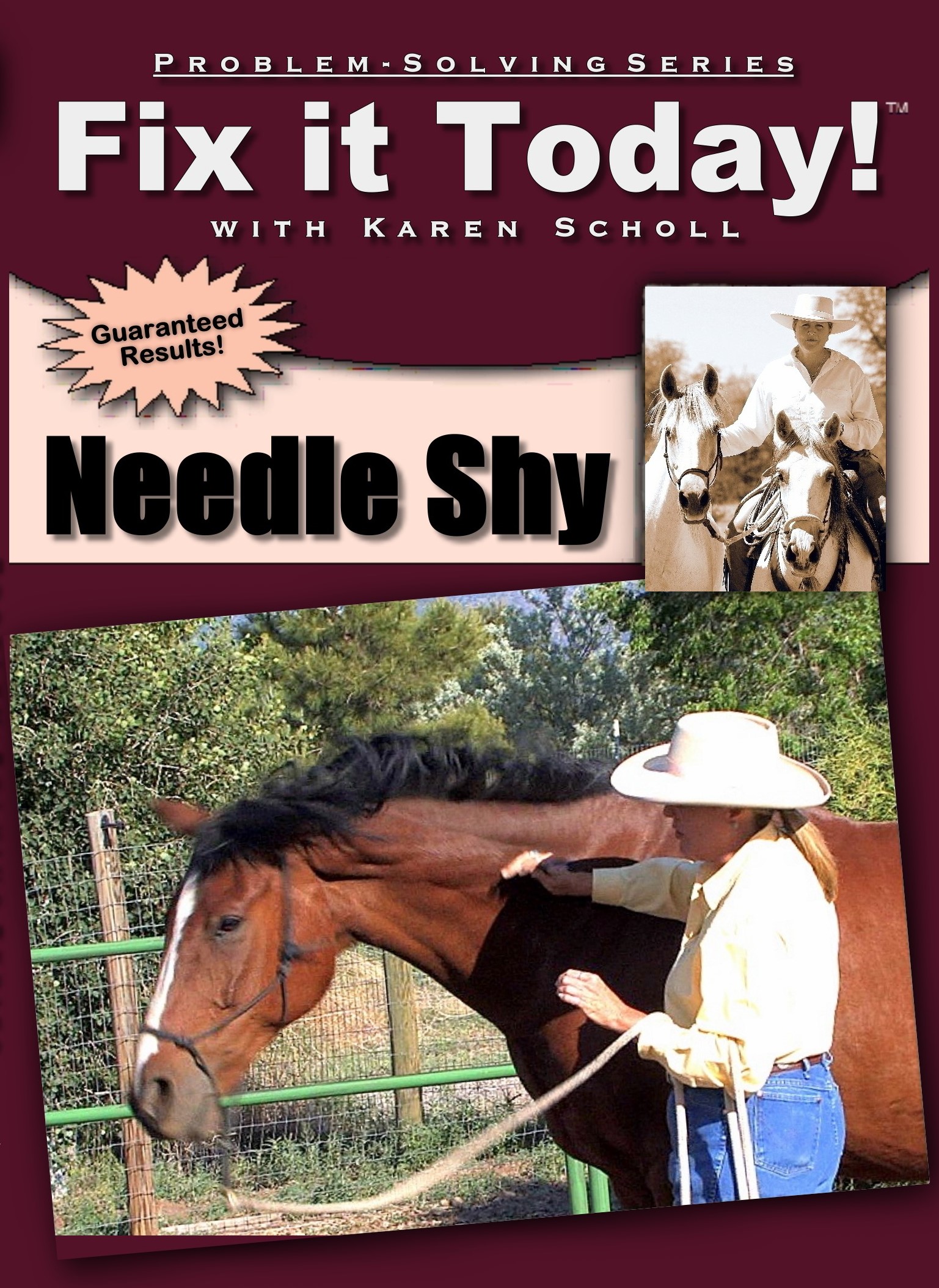
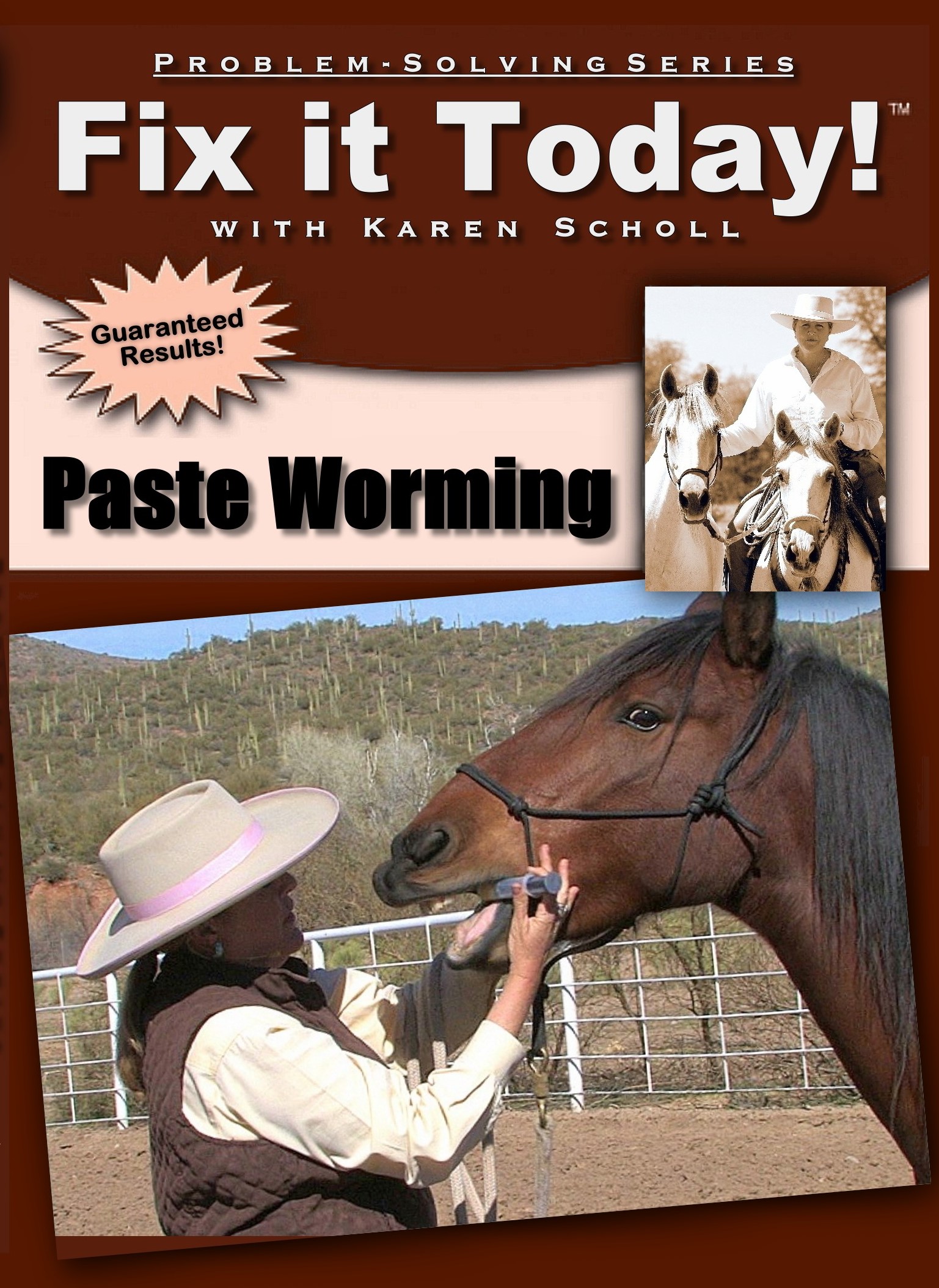
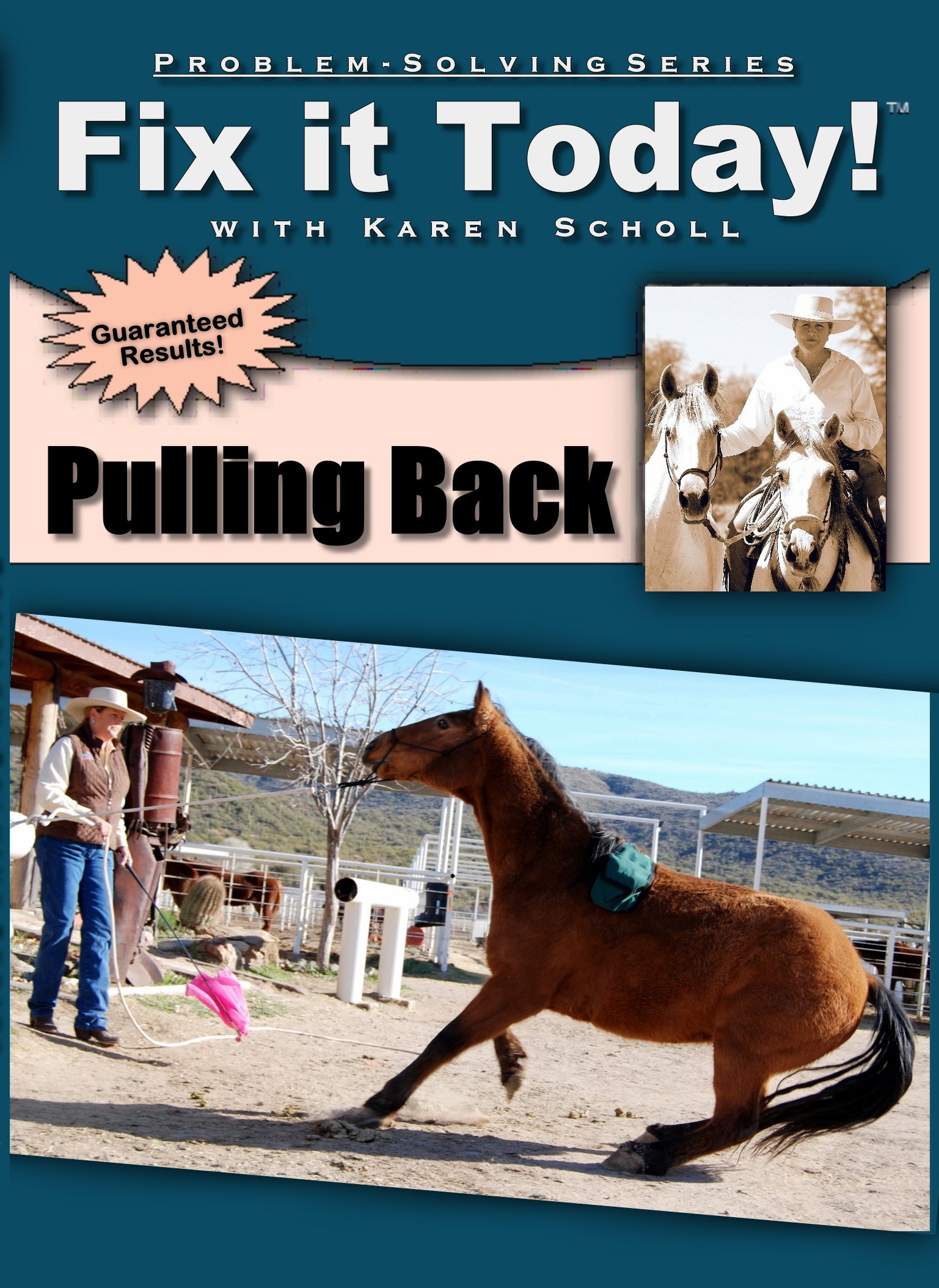
----------------------------------------------------------------------------------------------
 Fix It Today! KICKING
Fix It Today! KICKING
It's one of the first things we're warned about
with horses - don't walk behind them to avoid
being kicked! It's great advice for beginners,
but we'll eventually need to pick up back feet,
brush their hip or comb out the tail, and we'd
prefer to do it with confidence and a healthy
level of awareness!
By introducing the unfamiliar in a safe
and helpful manner, we can help a horse learn to trust our being in any position
around them... in front of, to the left or right of,
or even behind... without feeling like we're
putting ourselves in harms way.
----------------------------------------------------------------------------------------------

Fix It Today! NEEDLE SHY
Do you dread your horse's next vaccination
or an unexpected trip to the vet? No one likes
needles, so it's easy to sympathize when a
horse wants nothing to do with needles.
There's an approach that teaches even an
extremely needle-shy horse to remain relaxed
to receive an injection or draw blood. In fact,
every horse I have used this approach
with has responded beautifully, and in a relatively short amount of time. You may
be thinking that your horse is too extreme to help,
but when you see how the horses respond, you'll
feel equipped to help your horse... today!
----------------------------------------------------------------------------------------------
 Fix It Today! PASTE WORMING
Fix It Today! PASTE WORMING
It's so common for horses to learn to avoid paste
worming, that new products appear on the market
designed to compensate for this behavior.
Avoiding the problem is not the ideal answer
as dispensing meds or electrolytes may become a
necessity in some situations... then you're back to
wrestling with a horse in an effort to help them!
By taking the time to teach a horse to trust and
accept what's being placed in their
mouth, we can better prepare the horse and ourselves for any type of situation
when we need to help improve the health or
condition of a horse.
This approach does exactly that in just a few
short sessions, and with four different horses.
----------------------------------------------------------------------------------------------
 Fix It Today! PULLING BACK
Fix It Today! PULLING BACK
Even if your horse pulls back only once in
a while, you know deep down that you still
have a dangerous situation just waiting to
happen. That's why pulling back when tied is
so risky - you never really know what's going
to set it off or how severe the reaction will be.
Rather than living with the risk of waiting for
the next episode, why not discover a way to
make this behavior a thing of the past?
This approach will give your horse the understanding and confidence to be more likely to
stand tied, even when the unexpected happens,
especially with repeated sessions over time.


